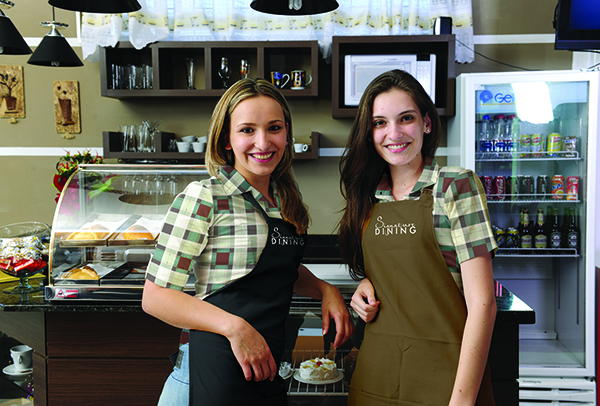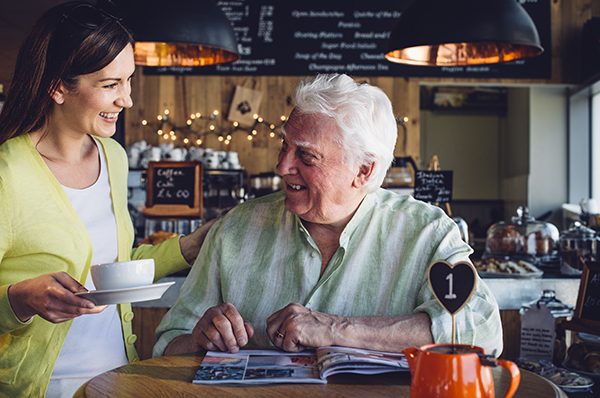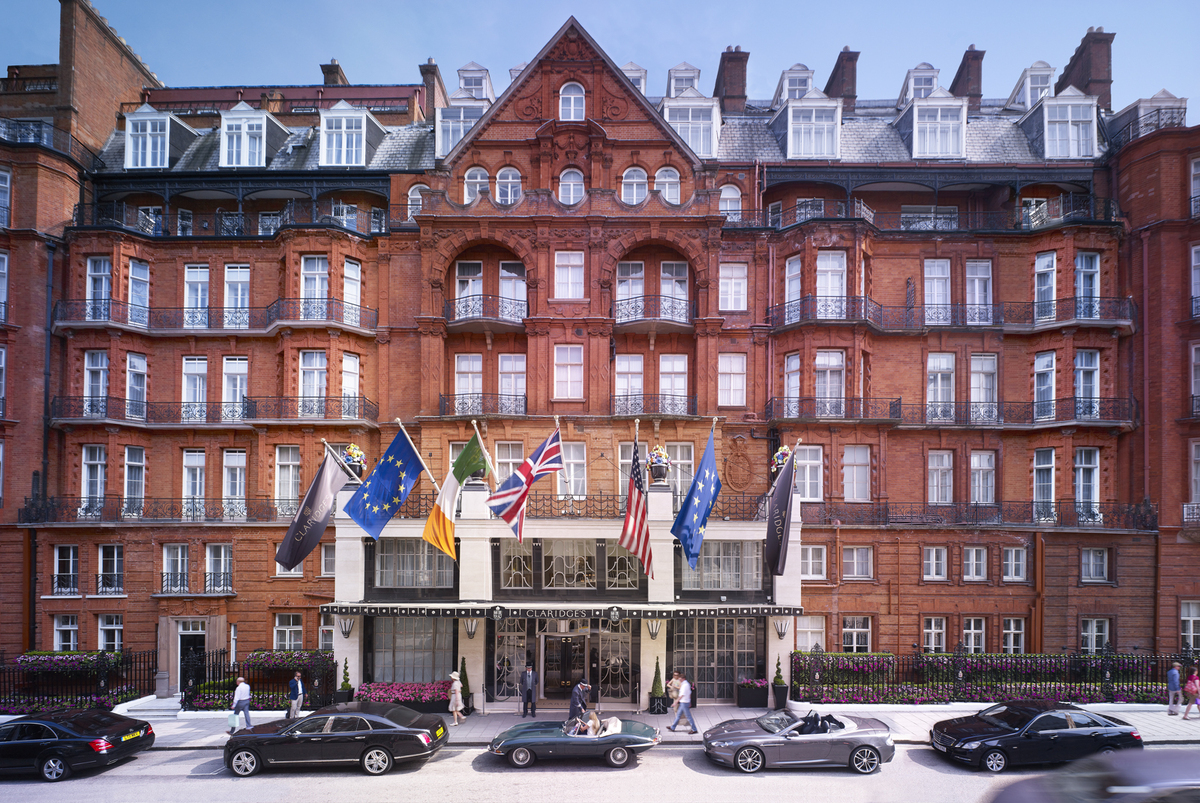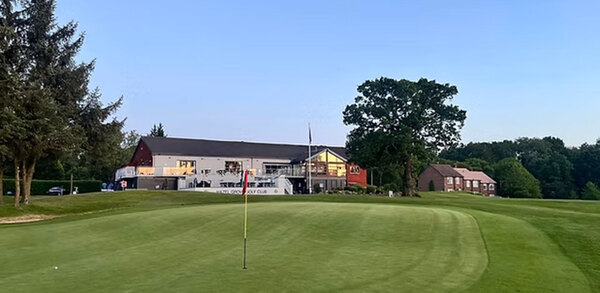Signature Dining: putting the retail into retirement
Signature Dining, part of the Genuine Dining Co group, is a new care catering company that wants to do it differently. Founder Paul Robottom (pictured) talks to Janie Manzoori-Stamford about why older people deserve five-star care service and offering apprenticeships to the over-60s
The launch of a new caterer on the foodservice block is something of a rarity these days. Recent years have instead seen headlines dominated by mergers and acquisitions as catering companies are consolidated rather than created.
So it is refreshing to see the launch of Signature Dining, a new business within the Luke Johnson-backed Genuine Dining Co group, run by managing director Chris Mitchell, particularly as it will specialise in the niche but growing care catering market.
And the business itself is a consequence of an active M&A market. Founder Paul Robottom's last role was managing director of Caterplus, until he stepped down when parent company Waterfall Catering Group was bought by Elior last year. "I didn't want to work for the big boys," he admits.
But the care catering sector is a complicated beast with an image problem. So how does Signature Dining aim to disrupt the market? What does Robottom believe his new venture can bring to the table? How has he bucked the trend by pioneering a new start-up in an industry of stalwarts? And what does its position within Genuine Dining Co mean for business?
Retail into retirement
"Care catering is the non-sexy side of our industry. It has had a stereotypical image of slop and sawdust, but it's not that now," says Robottom. "The care market is changing massively; people are living longer and retiring earlier."
Having been at the helm of Caterplus for seven years, taking it from £6m to £26m in annual turnover, he knows what he's talking about. Britain's care industry is worth around £17b, and the value of catering to it is estimated to be in the region of £250m and growing. It's the changing face of the care catering consumer that Signature Dining aims to appeal to in its core target markets: assisted living; retirement villages and gated communities.
"The common perception is that you're catering to old dears sitting in a lounge that smells of pee, and it's not that any more. These are five-star establishments and they want a service and catering to match," he says.
"Using the Genuine Dining whizz of retail and the influence of Luke Johnson, we'll be taking retail into retirement. Genuine Dining has a fantastic B&I mantra on merchandising and presentation, that type of thing. The care market doesn't have that, but we'll take it there. Just because you're in your 70s it doesn't mean you stop being brand aware."
But that awareness, as well an increasingly mobile older population, brings with it competition: "The high street and outside influences are a real threat," he adds.
While this savvy consumer end of the market is undoubtedly growing, the broad reality is that palliative care and end of life care is as much a part of the spectrum, and care caterers need to be equipped to deal with all of it. Dementia, Robottom says, is one of the biggest killers.
"I'm a registered Dementia Friend," he says, referring to the Alzheimer's Society initiative that helps people to learn what living with the condition is like. "Everyone we employ will be a Dementia Friend too, so they can understand how to deal with and comfort dementia sufferers. Empathy, sympathy and respect is vital and so is the training to give people the tools they need to do their job properly."
And there is no reason not to. Training is free of charge through workshops run by the Alzheimer's Society, he adds. But it doesn't stop there.
Sensory service
Robottom explains: "We're working with a company called Namaste, which deals with the five senses, to look at how food can trigger memory gain." The company sets up rooms for the residents in order to evoke memories. For example, the residents go into a room that has sensory triggers of the seaside, from the sounds of seagulls and waves to the smell of fish and chips with vinegar served out of newspaper.
âSilverline is crying out for volunteers, who have to be DBS-cleared. But people working in the care environment are DBS-cleared anyway, so thereâs a great hub of people we can use as volunteers.â
Signature Dining has also launched an apprenticeship aimed at the senior market, inspired by a similar scheme at DIY chain B&Q. Robottom says the Apprentice Seniorship Academy Programme (ASAP) recruits, trains and pays people in their 50s to 70s. For the residents, a workforce that includes older people is also likely to be more relatable. But how big is the demand for such a programme?
âHuge. Thereâs such a huge focus on apprenticeships and as caterers we know there are fewer skills coming out of college and university and into the market. This is a different way to attract people,â he says. âI spoke to someone at B&Q about it. They said the people they employ have experience, theyâre loyal and they turn up on time, even if they have a sniffly cold. Itâs a completely different work ethic.â
Start-up costs
There was a time when starting up in contract catering came with relatively few barriers to entry. With tenacity and experience, you could kickstart your enterprise from your spare bedroom and still build up a sizeable empire. Creativeventsâ Adrian Willson and the late, great Robyn Jones both did just that. But getting off the ground now is a different story. Subsidised contracts have fallen away, with prospective clients demanding hefty investment in facilities from caterers. Then there is the added cost of compliance to ever-more intense legislation, such as the regulations around allergens that were introduced in 2014.
âI wouldnât have been able to do it without the support of Genuine Dining,â says Robottom. âI would have had to remortgage the house â" and probably end up divorced!â
But as challenging as legislation can be, it has also created more opportunities. Clients that might once have thought they could do the catering both better and cheaper are increasingly leaving it to the experts.
âThe allergens legislation was a big turning point. Lots more tenders hit the market and all parties had to concentrate on their core skills: care and care catering,â he says. âThatâs only likely to continue.â
Robottom says he plans to grow the business to £9m over the next four to five years, an ambition he describes as âfairly doableâ, based on the ratios he was winning at Caterplus. No doubt an uptick in outsourcing will help, as will the back of house infrastructure that being part of Genuine Dining brings.
âI think there will also be a fallout over the next two years from the merging of companies. People wonât want to be in bed with the big boys because they want that personal service,â he says. âI know thereâs a niche in the market.â
It is a niche that Robottom is determined to fill, and all the signs suggest that Signature Dining is on track to do just that.
Get The Caterer every week on your smartphone, tablet, or even in good old-fashioned hard copy (or all three!).




















